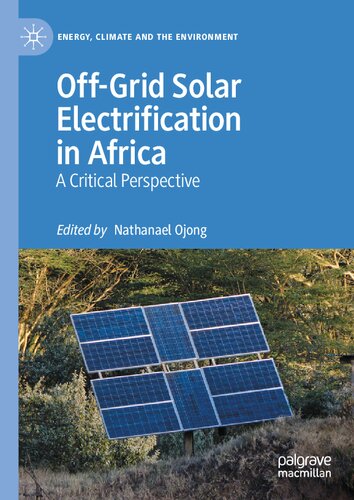

Most ebook files are in PDF format, so you can easily read them using various software such as Foxit Reader or directly on the Google Chrome browser.
Some ebook files are released by publishers in other formats such as .awz, .mobi, .epub, .fb2, etc. You may need to install specific software to read these formats on mobile/PC, such as Calibre.
Please read the tutorial at this link: https://ebookbell.com/faq
We offer FREE conversion to the popular formats you request; however, this may take some time. Therefore, right after payment, please email us, and we will try to provide the service as quickly as possible.
For some exceptional file formats or broken links (if any), please refrain from opening any disputes. Instead, email us first, and we will try to assist within a maximum of 6 hours.
EbookBell Team

0.0
0 reviewsThis book evaluates off-grid solar electrification in Africa by examining how political, economic, institutional, and social forces shape the adoption of off-grid solar technologies, including how issues of energy injustice are manifested at different levels and spaces. The book takes a historical, contemporary, and projective outlook using case studies from pre- and ongoing electrification communities in non-Western countries such as Ghana, Kenya, Rwanda, Senegal, Malawi, Tanzania, and Nigeria. Beyond the diverse nature of these countries in terms of their geographical location in West, East, and Southern Africa, each offers a different experience in terms of colonial history, economic and institutional infrastructure, social and cultural context, and level of adoption of off-grid solar technologies. Notably, the book contributes to the off-grid solar and energy justice scholarship in low-income non-Western contexts. It examines various approaches to energy justice and does so by engaging with Western and non-Western philosophical notions of the concept. It takes into consideration the major principles of Ubuntu philosophy with the adoption of off-grid solar technologies, hence enriching the energy justice framework. Finally, the book interrogates the degree to which the social mission that catalysed the expansion of the off-grid solar sector is being undermined by broader structural dynamics of the capital investment upon which it is reliant. It also argues that the ascendance of off-grid solar electrification in Africa is transformative in that it enables millions of people without access to or facing uncertainties linked to centralised grid energy to have access to basic energy services.